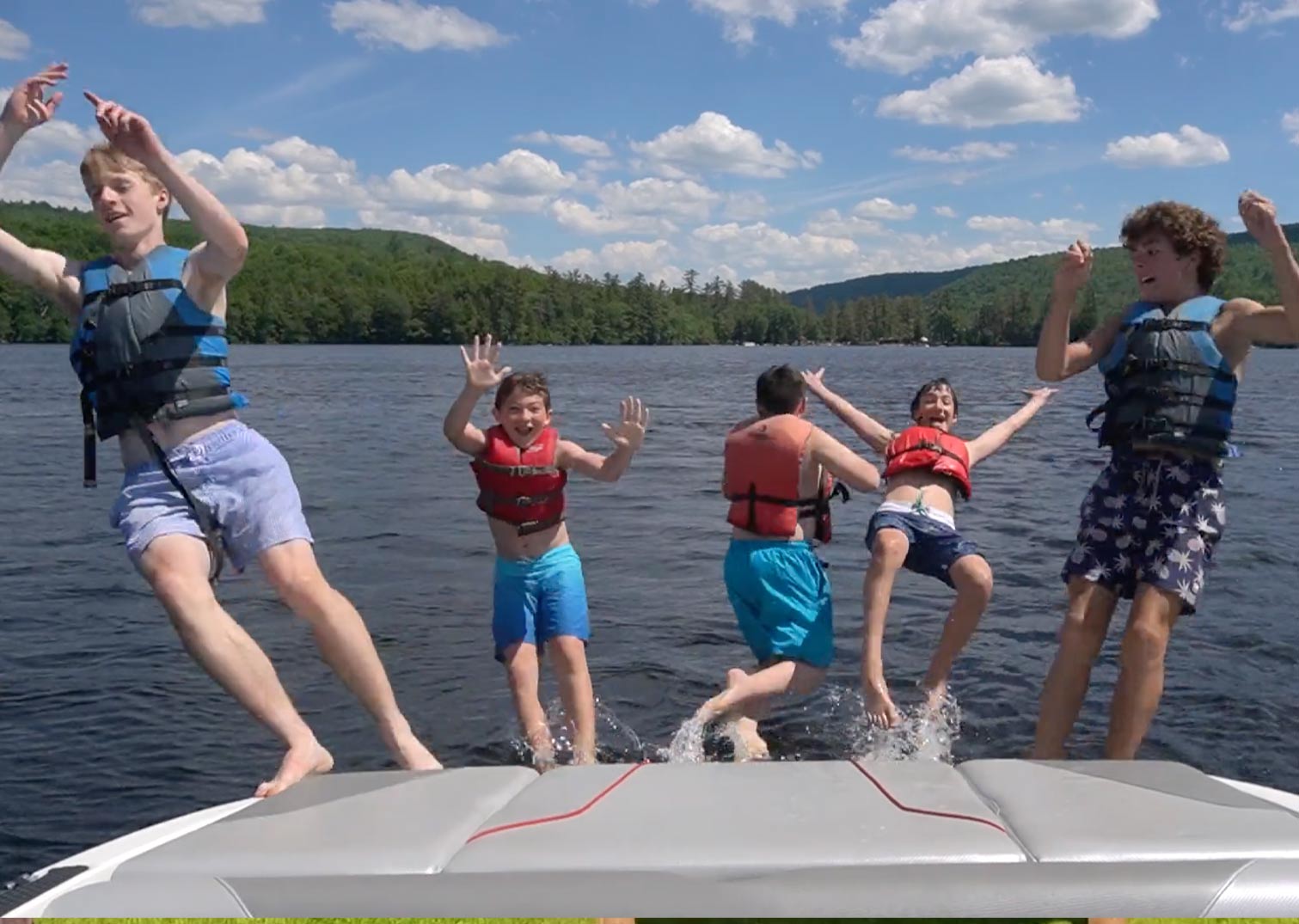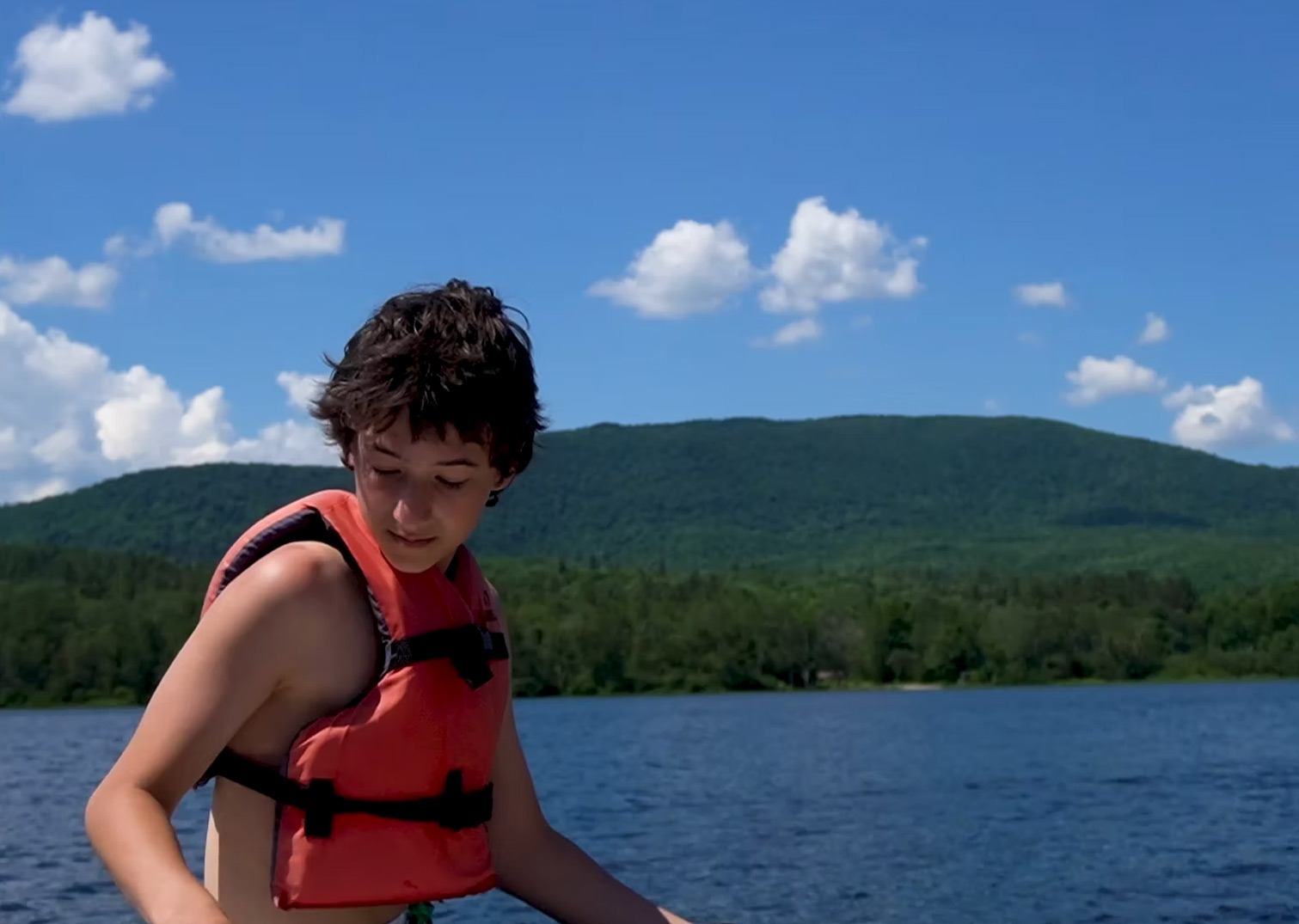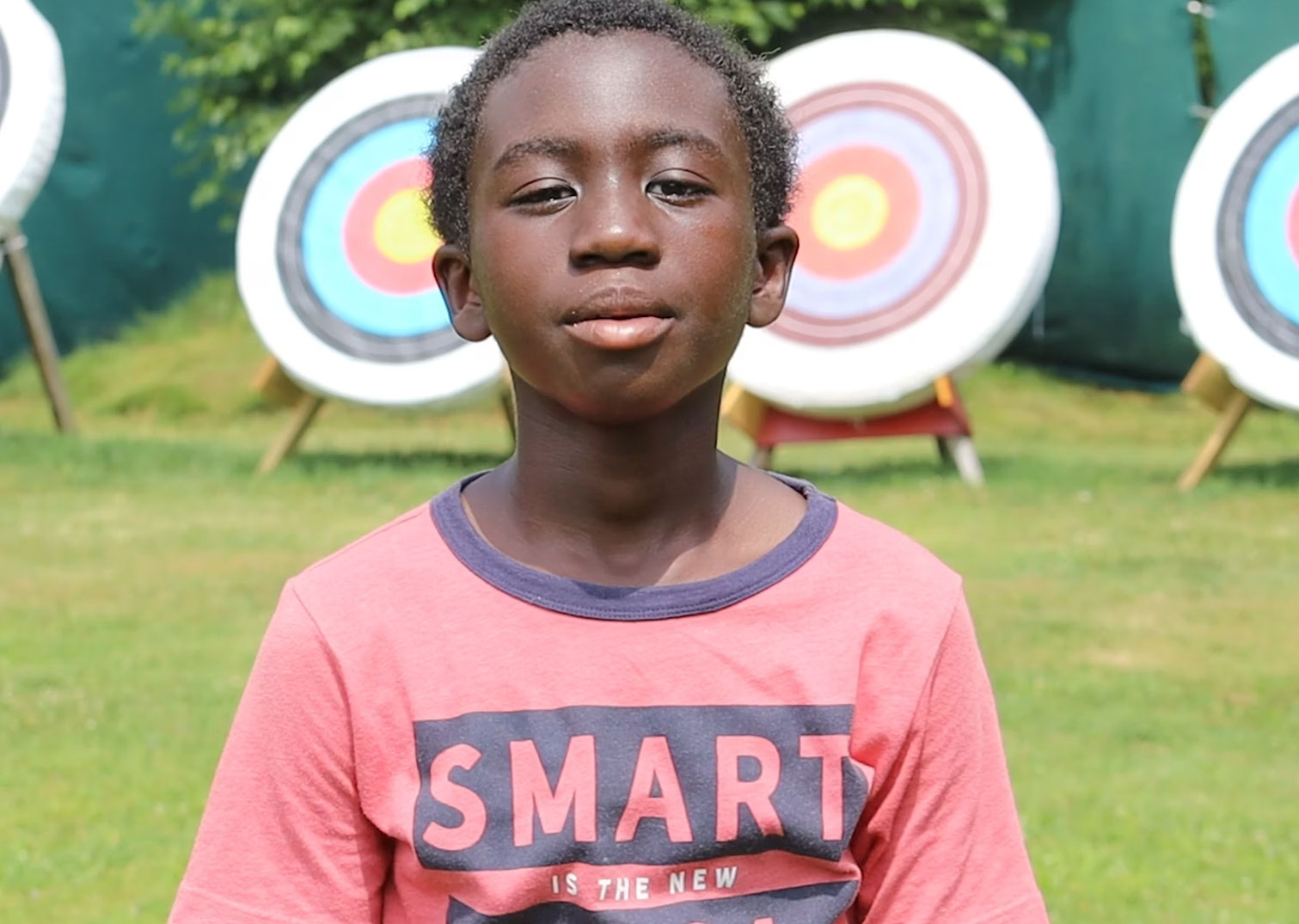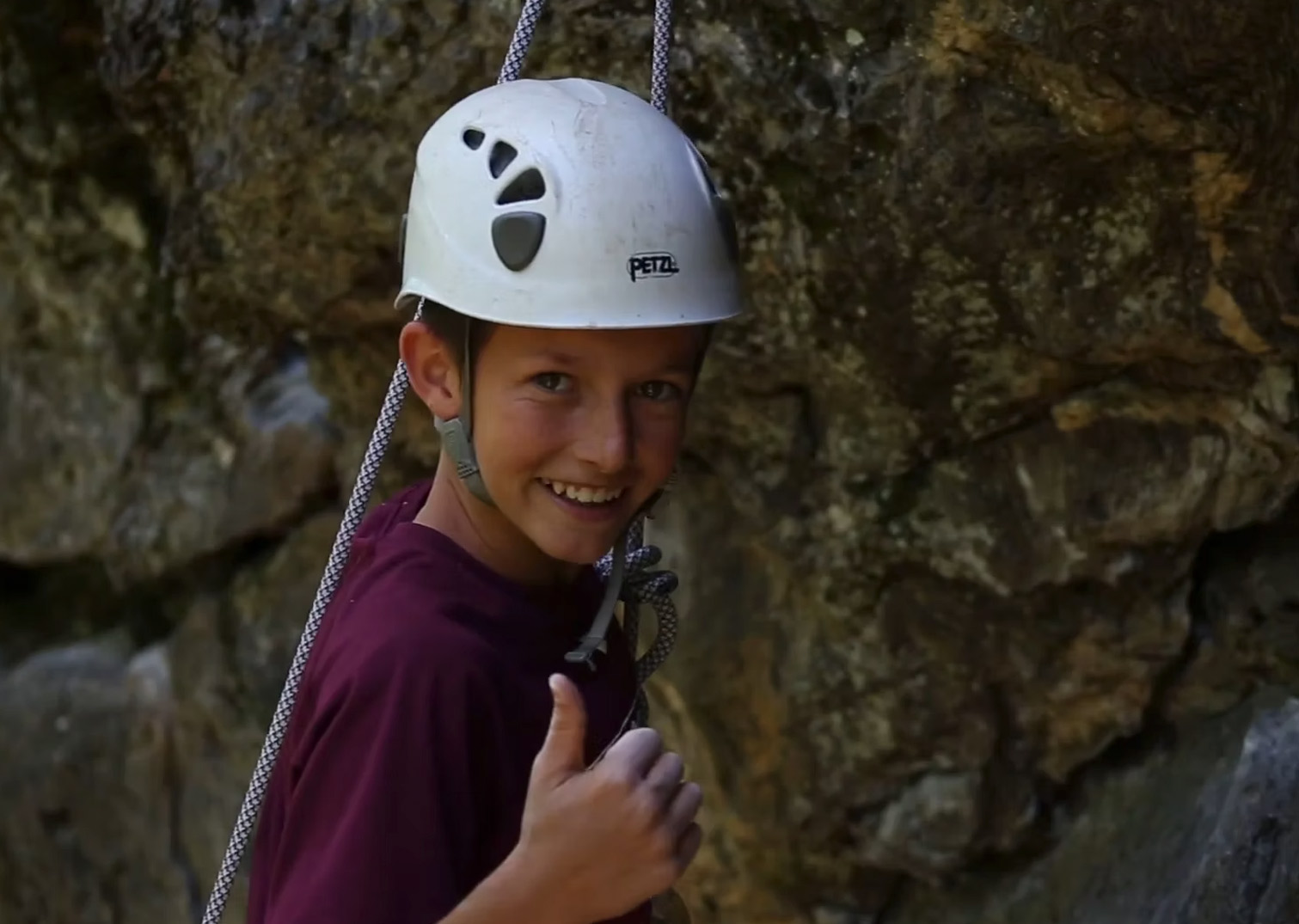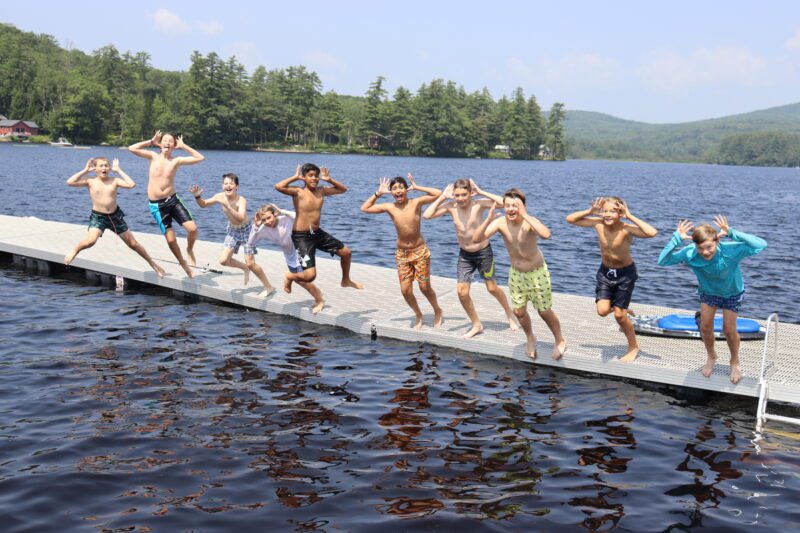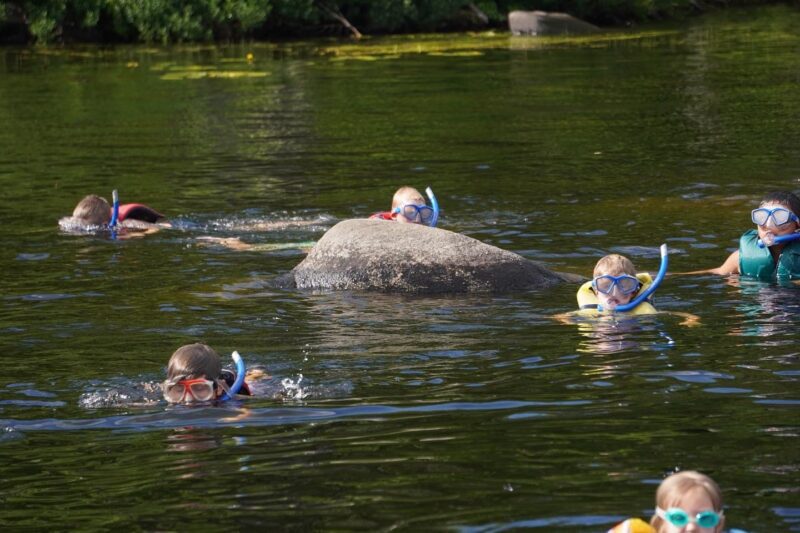Homesickness
The summer camp journey, as with all important endeavors, may not be easy for your child—or you—from start to finish.
Homesickness

The summer camp journey, as with all important endeavors, may not be easy for your child—or you—from start to finish.
by Bill McMahon, Co-Director
In his book, “Homesick and Happy: How Time Away From Parents Can Help a Child Grow,” Michael Thompson writes: “If you were to boil down the thousands of parenting questions I am asked in a given year, their essence basically is: what should I be doing for my child?” After listing a number of variations on the theme, Thompson writes “these can be tough questions to answer, because quite often the parent is not doing too little but is already doing too much.” Thompson goes on to write: “There are many times when my answer to the key question is: “have you thought about sending your child to sleep away camp?” He then states: “I believe that at many points in their children’s lives, parents need to step aside, ask other adults to take over and even send their children away in order to help their offspring become loving, productive, moral, and independent young adults.”
In these quotes, Thompson gives us a powerful reason why an overnight camp can be such an important experience. Another is that a great camp, with a positive and supportive peer culture and a program that challenges kids with positive risk-taking, is the ideal setting for boys to gain real self-esteem, resilience, and happiness.
But the summer camp journey, as with all important endeavors, may not be easy for your child—or you—from start to finish. One possible bump in the road is homesickness, or the parenting equivalent, which is “child-sickness.” The following advice arises from decades of experience working with children at camp, boarding school, and dealing with their parents, and also the wisdom contained in Thompson’s book. Moose parents, new and old, please read the advice below carefully, and be in touch if you have questions.
What is homesickness? Who gets it?
Thompson writes that “Homesickness is not a psychiatric illness. It is not a disorder. It is the natural, inevitable consequence of leaving home. Every child is going to feel it, more or less, sooner or later.” This last point is critical: every camper has at least a little homesickness. There are definitely varying degrees of homesickness, but for the vast majority of campers homesickness should really be seen as “peer-sickness”. For most kids, if they go to a camp and feel cared for and make friends, homesickness will not be a significant issue.
Do different children get different levels of homesickness?
The clear answer is yes. Thompson quotes research that states that 19% of kids at overnight camps experience “significant distress.” Our experience at Moosilauke is more positive, possibly due to our size and culture. We have found that less than 5% of our campers, on average, get a significant dose of homesickness. This means that out of 140 campers, only about 5-7 will show signs of distress.
What predisposes certain kids to tougher levels of homesickness?
Predicting homesickness is much more art than science. Although the criteria below can add some insight, camps are continually amazed by the slightly introverted, nervous boys who love camp from the first minute and the seemingly confident boy who ends up in tears.
In his book, Thompson lists the following factors as possibly contributing to making boys “homesick predisposed”:
In terms of the question, “should some kids with homesickness go home?” Our answer at Moose is a resounding “no,” as long as parents follow the “dos and “don’ts” listed below and have made a thoughtful assessment ahead of time of whether their kid is ready for camp. If parents, after reading the points above on what predisposes children for significant homesickness, are not sure whether to send their child, the best advice is to call the camp director and talk about the situation in detail.
Another issue is what age is best to send a child and whether it is better to wait and let them become more mature. Our experience is that it is not always best to wait and send your child. Often the older first-time campers have the hardest time, and the youngest campers are the most carefree.
Can parents help alleviate and/or exacerbate homesickness? What are the parents‘ critical “dos” and “don’ts” before their child goes to camp?
We can’t stress enough that for many families, the parents have a harder time with the separation than the child. Especially moms. Given this, the following “dos” and “don’ts” before camp starts are critical for parents to embrace:
On the reverse side, here are the key parental “dos” before your child gets to camp:
If a boy is more than a little homesick at camp, what are the best strategies?
At Moosilauke we employ a number of practices to help individuals and the community work with homesickness. It starts with Bill talking to all new boys about homesickness on the first day. He also talks with the whole camp to demystify the feelings and take away shame. And during the first week, we hold daily staff meetings, so we have a 360-degree look at which campers are showing signs of homesickness.
Counselors have a number of important roles to play at Moose. As Thompson points out, the first is just to be a fun, caring, great counselor. The second is to talk in a real, in-depth way with a camper who is homesick, so the boy feels empathized with and listened to. Campers need to know staff understands their suffering. Next, it is imperative to talk with homesick kids about strategies they can use when feeling down. And then, it is critical for the counselor to get the kids distracted and doing something. Empathy is important, but wallowing is not positive. And, of course, a crucial role of counselors with very homesick kids is to bring Bill and Sabina into the conversation.
Bill and Sabina spend significant one-on-one time with the campers who are in distress. They do everything from teaching the kids diaphragmatic breathing (to slow the adrenal system), to talking with them about the typical arc of the worst part of homesickness (about 5 days). Bill and Sabina try and get boys to attend all their classes, but they do give the boys the option to come to the office during free time to talk and read some of the fun material on the shelves. If boys continue to have significant homesickness after a few days, they will coordinate a call where the camper talks with his parents, and then Bill and Sabina do also. The purpose of this call is for the camper to understand his parents are not coming to get them. A boy with significant homesickness can’t totally give in to the power of the camp experience until he knows he is not going home. If he thinks there is a chance he is going home, he will elevate his distress (consciously or unconsciously).
Key strategies for parents to embrace when communicating with their child while he is at camp (via letters and possibly a call) are as follows: communicate to them you understand they are in distress (don’t gloss over their suffering); remind them of why they wanted to go to camp; ask them about what they have tried and achieved (or what they want to); ask them what is most fun about camp; remind them of strategies to use when they get homesick; tell them how proud you are of them; and tell them you are going to have an awesome celebration when they get home!
It is important to know that sad letters are par for the course, especially in the beginning.
What are the downsides of not letting your child complete his camp experience?
Thompson writes that “…coming home early is like kicking the can of conquering homesickness down the developmental road.” He points out that kids who are unable to remain with peers on a school trip or at camp carry negative feelings about themselves for the rest of their lives.
Final thoughts
For parents, it is essential to remember that we can’t make our kids happy. They have to earn a positive sense of self on their own. And the process of doing so usually involves some struggle and hardship. Without struggle and challenge there is no real sense of accomplishment and self.
Parents should view homesickness as an important part of their child’s journey toward positive self-esteem and resilience. Remember: homesick—and happy. Don’t muck it up for him! Model the behavior you want from your child before, during, and after the camp experience. Be positive, supportive, and strong!


